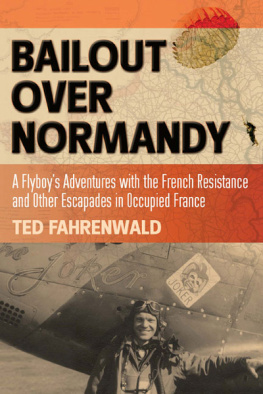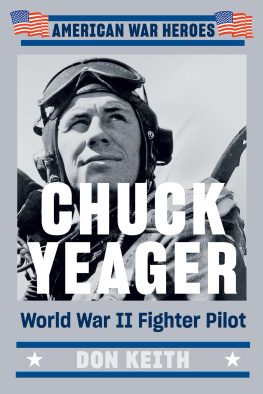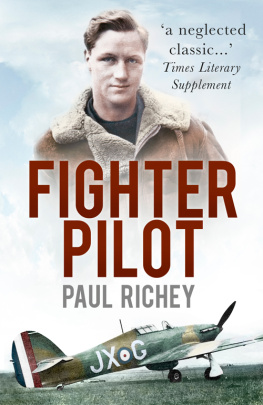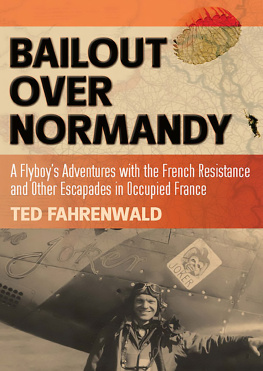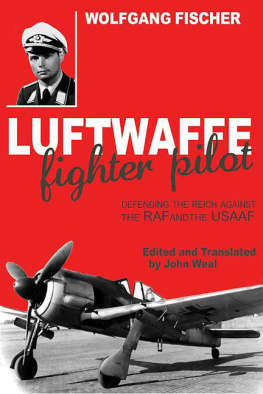Published in the United States of America and Great Britain in 2012 by
CASEMATE PUBLISHERS
908 Darby Road, Havertown, PA 19083
and
10 Hythe Bridge Street, Oxford, OX1 2EW
Copyright 2012 Madelaine Fahrenwald
PRINT ISBN 978-1-61200-157-9
Digital Edition: ISBN 978-1-61200-158-6
Cataloging-in-publication data is available from the Library of Congress and
the British Library.
All rights reserved. No part of this book may be reproduced or transmitted in any form
or by any means, electronic or mechanical including photocopying, recording or by any
information storage and retrieval system, without permission from the Publisher in writing.
1 0 9 8 7 6 5 4 3 2 1
Printed and bound in the United States of America.
For a complete list of Casemate titles please contact:
CASEMATE PUBLISHERS (US)
Telephone (610) 853-9131, Fax (610) 853-9146
E-mail:
CASEMATE PUBLISHERS (UK)
Telephone (01865) 241249, Fax (01865) 794449
E-mail:
CONTENTS
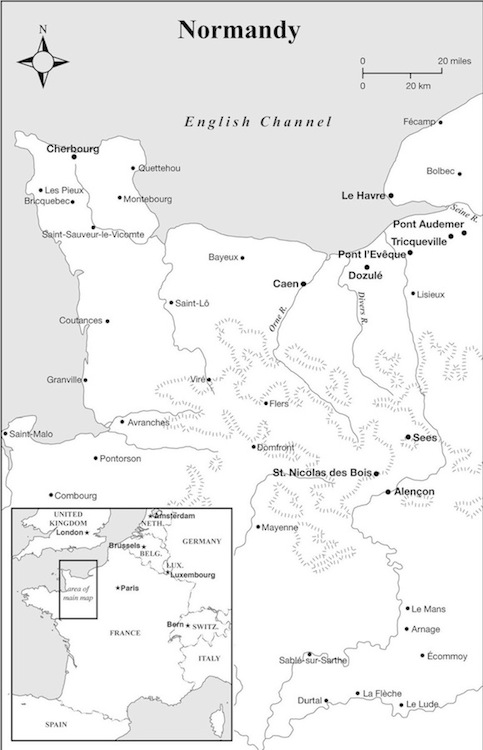
EDITORS NOTE

M y father sat down to record his swashbuckling World War II adventure tale immediately after his discharge from the Army Air Corps in 1946. He finished about one year and many cartons of cigarettes later, and then the manuscript sat on a shelf for decades, known only to family and friends. Dad didnt pursue the career in journalism that hed dreamed of as a young college man; instead, he had a family and with his brother Fran operated a small steel mill inherited from their father. This book is a tribute to my Dad: his humor, his over-the-top love of life, and especially his unacknowledged artistic talents as a writer, storyteller, and artist. Everyone whos read the manuscript has insisted that it must be published, and I decided to do that, nearly seventy years after the events he describes and seven years after his death in 2005.
Dads father was the archetypal Indiana Jonesborn in a sod house in South Dakota, he grew up to become an all-around outdoorsman, an inventor with nearly 200 patents to his name, and a mining engineer who explored mines from Alaska to South America. Raised by two Northern Plains romantics on the family ranch and in Chicago, Dad was a member of the last generation to straddle the great American Frontier and the modern era.
He grew up hunting, fishing, camping, and traveling with his father, and already had his commercial pilots license and was an avid flyer, motorcyclist, and full-fledged daredevil when he enlisted at age 22 determined to become a combat fighter pilot. With its reputation for attracting hot-shots and risk-takers, that role was custom-made for him. Dads trickster personality and comedic skills enabled him and his cohort to prank and party their way through every stage, from basic training in California to pilot training in Arizona to combat assignment in England. Those qualities enabled Dad to not just survive but also to thrive in his relationship with the backwoods French Resistance outlaws he fought and partied withand also during his internment and escape from a German POW camp.
I thought it important to preserve the integrity of Dads vernacular. As unpolitically correct as it might read these days, that was the jargon of the WWII-era flyboy; for that reason, I kept the manuscript exactly as it was written, with very little editing.
I believe that youll find this wild ride back in time to another place and another era to be an irresistible readand that youll also enjoy getting acquainted with some of the more rambunctious members of The Greatest Generation.
Madelaine Fahrenwald
PROLOGUE

A bunch of the boys was whoopin it up, as usual. Fighter pilots all, bellied up close to the bar, boot-heels lodged in spittoons. In England this was, in a little tin hut at the edge of a grassy flying field up near the cold North Sea. The fairly indestructible remnants of a hot-shot Mustang squadron, wed been roosting right here for a yearfor we drank upon occasion, the most frequent of which being sundown.
Flying by day were we, and by night winning the bloody great war with Scotch-and-soda, and it seemed that the same rowdy crew always led off on these nighttime missions. Inevitably, as the night bombers of the RAF would string out across the darkening skies, so would Parchesi-Joe and the Gremlin, Pappy and Scotti and Mac and I trail into the musty, dim barroom of our clublured by the wafted fumes of rare old mountain dew. And in comparison to some of these nightly affairs, combat flying was utter relaxation. The jagged brick footrest of our tiny bar was quite as much an occupational hazard as the flak lobbed up from Happy Valley or Berlinthe designers of our cozy retreat having failed to foresee the disastrous possibilities inherent in the combination of one peashooter pilot, a quart or so of ersatz Scotch, plus the inexorable law of gravity.
Booze, however, was not our sole joy and diversion. Perhaps in the course of an evening there might be a small game of chance; a reckless round of stud, wherein our hard-earned pound notes would sail through the drifting strata of tobacco smoke like snowflakes in a Dakota blizzard.
Other nights we might just crouch in the darkest corner of our lair, hashing over past aerial exploits to evolve fantastic new methods of slaughtering Jerries with a P-51. It has never been proven that there existed any liaison between High Command and our bleary-eyed council, but the most reckless of our alcoholic schemes would invariably come true. Having long since discovered the uncannily accurate prophecies that lay inscribed upon the bottom of every whiskey jug, we were thus led to believe that perhaps High Command had been fashioning our fate with the same carefree bravado as wed been using to predict it.
But maybe wed just drink to dear Aunt Gussie. The fairest of queens in the royal courts of old was never toasted as frequently or with such fervor as was this venerable dame. Designed and constructed according to our rigid specifications, this invisible old squaw had been brought into our cruel little world to serve solely as a salve for what we laughingly referred to as our collective conscience. The latter would infrequently cause us pangs, should we all become soaked for no apparent reason. One should always have something definite to celebrate, and Aunt Gussies birthday was generally it. She aged rapidly.
And whenever my battered guitar would come from under the bar, then the air would well resound with a notorious collection of ballads: all those we used to know and love so well, a raucous repertoire at best. Even the Red Cross wenches could work up a blush or two at some of these delicate ditties. A fun-loving lot at heart we were, and nothing cramped our style. Each night at closing time our uproarious departure into the blackout would never fail to elicit from our true friend, Pat the bartender, the comment spoken sadly: The Cream of American Youth. Jeeeezus! We were sure foolin the public.
And so tonightthat rainy night of June the 5th of 44, and the night my story beginsthe squadrons evening session started out with the usual routine. After impishly pouring four fingers of rotgut into my glass, my old flying partner Mac had cried: Cmon, Faro! Leave us have a party!
Why certainly, I replied. To Aunt Gussies 99th, bless her filthy soul! So with a clink, a gulp, and a shudder, things got under way.
As the jamboree grew both in number and intensity, the talk around the bar became laced through with a thread of tension, for it looked to us as though perhaps our tired old war was coming at last into some sort of focus. In enemy skies of late, wed accomplished an inordinate amount of highly specialized dirty work, and in retrospect there could be seen a certain method to our madness.
Next page
